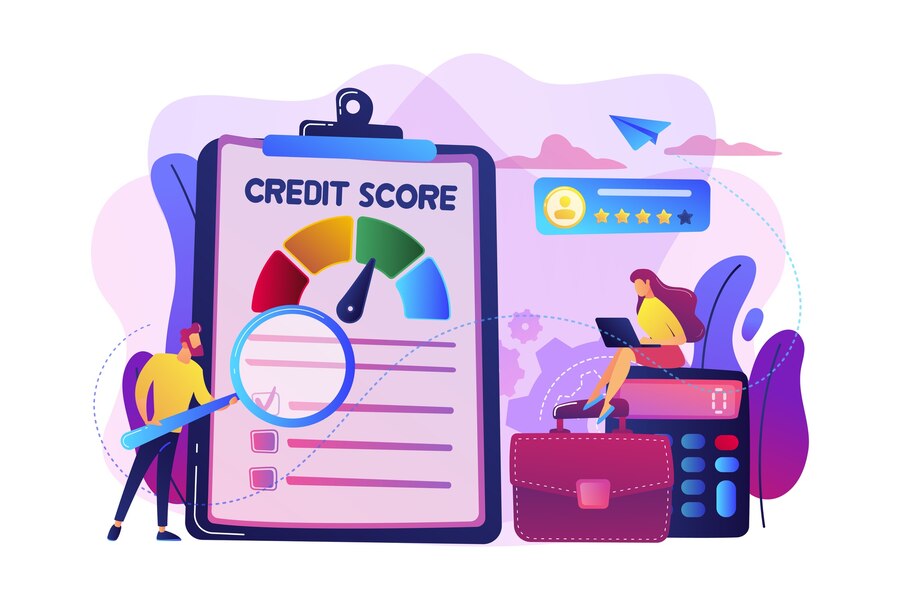Building and maintaining a good credit score is essential for financial stability and access to various financial products, such as loans, credit cards, and mortgages. A good credit score can result in better interest rates, higher credit limits, and more favorable loan terms. Here are detailed steps and strategies to help you build and improve your credit score.
Understanding Credit Scores
A credit score is a numerical representation of your creditworthiness, based on your credit history. In India, credit scores range from 300 to 900, with scores above 750 considered excellent. Credit bureaus such as CIBIL, Experian, and Equifax generate these scores based on factors like payment history, credit utilization, length of credit history, types of credit, and recent credit inquiries.
Steps to Build and Improve Your Credit Score
- Obtain Your Credit Report
Regular Checks:
Start by obtaining your credit report from one of the major credit bureaus. You are entitled to one free credit report per year from each bureau. Regularly checking your credit report helps you stay informed about your credit status and spot any inaccuracies.
Identify Errors:
Review your credit report for any errors, such as incorrect personal information, accounts that don’t belong to you, or incorrect payment statuses. Dispute any inaccuracies with the credit bureau to have them corrected.
- Timely Payments
Payment History:
Your payment history is one of the most significant factors affecting your credit score. Consistently making on-time payments for credit cards, loans, and utility bills demonstrates financial responsibility and improves your score.
Set Reminders:
Set up payment reminders or automate payments to ensure you never miss a due date. Even one late payment can negatively impact your credit score.
Partial Payments:
If you’re unable to pay the full amount due, make at least the minimum payment. Missing a payment entirely is worse than making a partial payment.
- Manage Credit Utilization
Keep Balances Low:
Credit utilization is the ratio of your credit card balances to your credit limits. Aim to keep your credit utilization below 30%. High credit utilization indicates higher risk and can lower your score.
Distribute Balances:
If you have multiple credit cards, spread your balances across them rather than maxing out a single card. This can help keep your overall credit utilization low.
Request Credit Limit Increases:
If you have a good payment history, consider asking for a credit limit increase. This can lower your credit utilization ratio, but ensure you don’t increase your spending with the higher limit.
- Diversify Your Credit Mix
Types of Credit:
Having a mix of credit types, such as credit cards, installment loans, and retail accounts, can positively impact your credit score. It shows that you can manage different types of credit responsibly.
Avoid Unnecessary Debt:
While diversifying your credit mix is beneficial, don’t take on unnecessary debt just to improve your credit score. Only apply for credit when you need it and can manage it responsibly.
- Length of Credit History
Maintain Older Accounts:
The length of your credit history contributes to your credit score. Keep your oldest credit accounts open, even if you don’t use them frequently. Closing old accounts can shorten your credit history and negatively impact your score.
Authorized User:
If you have a short credit history, consider becoming an authorized user on someone else’s credit card. Ensure that the primary cardholder has a good credit history, as their positive credit behavior will reflect on your report.
Limit Credit Inquiries
Soft vs. Hard Inquiries:
There are two types of credit inquiries: soft and hard. Soft inquiries, such as checking your own credit report or pre-approval offers, do not affect your credit score. Hard inquiries, such as applying for a new credit card or loan, can lower your score.
Minimize Applications:
Limit the number of new credit applications to avoid multiple hard inquiries. Each hard inquiry can slightly lower your credit score and multiple inquiries in a short period can have a significant impact.
Rate Shopping:
When shopping for loans, such as a mortgage or auto loan, do all your rate shopping within a short period (typically 14 to 45 days). Credit scoring models usually treat multiple inquiries in a short time frame as a single inquiry.
Regular Monitoring and Maintenance
Credit Monitoring Services:
Consider subscribing to credit monitoring services that alert you to changes in your credit report. These services can help you detect fraud early and take corrective actions promptly.
Debt Repayment Strategy:
Develop a debt repayment strategy, such as the debt snowball or debt avalanche method, to systematically pay down outstanding balances. This will not only improve your credit score but also reduce financial stress.
Emergency Fund:
Build an emergency fund to cover unexpected expenses. This ensures you won’t rely on credit during emergencies, helping you maintain low credit utilization and avoid additional debt.
Conclusion
Building and maintaining a good credit score is a continuous process that requires discipline and financial responsibility. By regularly checking your credit report, making timely payments, managing credit utilization, diversifying your credit mix, maintaining a long credit history, limiting credit inquiries, and monitoring your credit, you can steadily improve your credit score. A good credit score opens doors to better financial opportunities, lower interest rates, and greater financial stability. By following these strategies, you can achieve and sustain a healthy credit profile.
Get in touch with us today at www.Settleloan.in and embark on your path to financial freedom


